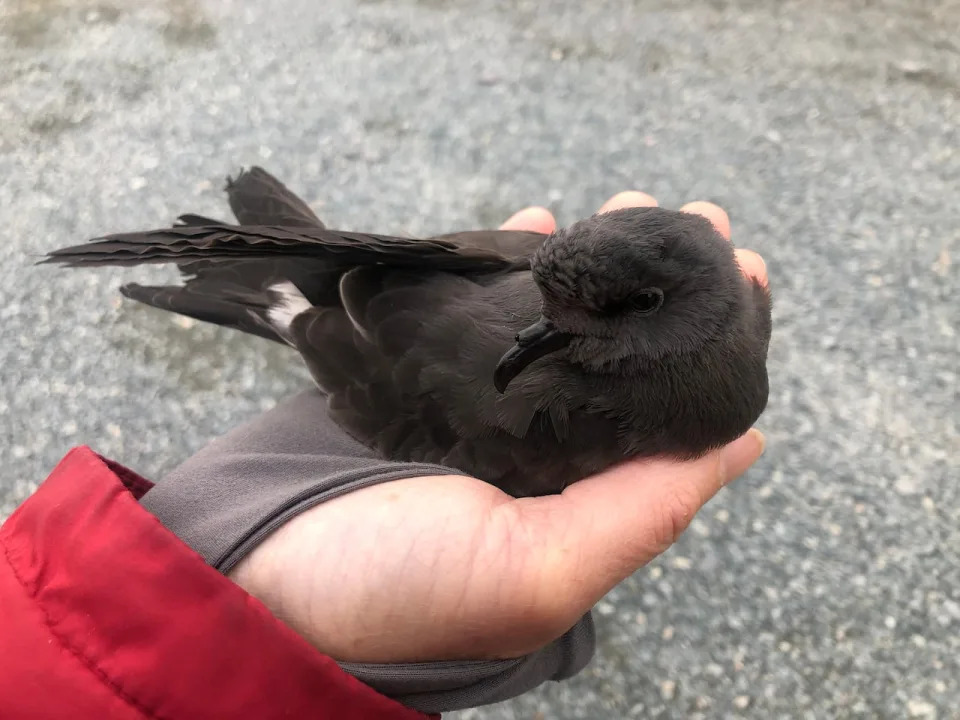CBC
Sun, October 8, 2023

Biologist Sabina Wilhelm works for the Canadian Wildlife Service. She is a member of the Petrels Patrol, which helps bring stranded birds back to their migration course. (Darrell Roberts/CBC - image credit)
A group of volunteers called Petrel Patrol is scooping up stranded birds in the Avalon Peninsula and pointing them back to their migration route.
As petrels follow their traditional migration route from the shores of Newfoundland to the coast of Africa, some — especially young birds — get disoriented by winds and light pollution, winding up on roads and in people's driveways, says Sabina Wilhelm, a biologist with the Canadian Wildlife Service.
"It's a long way to go, and unfortunately, due to those environmental conditions, they need a bit of extra help to get back on course," said Wilhelm. September and October are when the patrol tends to find stranded birds, she said.
"Most of the birds that we find stranded come from Baccalieu Island, which is the largest colony in the world. There are two million pairs breeding on Baccalieu Island."
When the young birds leave the island, they often fly over the Avalon Peninsula, she said, which is why the patrol finds them stranded in the area around St. John's, Mount Pearl and Holyrood.
When petrels are found, the Petrels Patrol intervenes to guide them back onto their route.
Petrels are small birds with black feathers and white bumps. They have a hooked bill with an extra tube on top and web-like feet like a seabird. In terms of personality, Wilhelm says, they are timid and gentle birds.
"If you see one on the ground, you'll find out that you can just walk up to it and pick it up. They're not really trying to escape. They're very, very gentle birds."

Storm petrels can become stranded off their course due to strong winds and light pollution. Biologists say that their largest colony is located on Baccalieu Island, just off the coast of the Avalon Peninsula. Storm petrels can find themselves off course due to strong winds and light pollution. Biologists say their largest colony is located on Baccalieu Island, just off the coast of the Avalon Peninsula. (Darrell Roberts/CBC)
The eyesight of young birds isn't fully developed, and they're sensitive to light pollution from cities and towns and winds that push them off course.
Anyone who finds a petrel should put it gently in a box for safety and call the Canadian Wildlife Service or the Rock Wildlife Rescue, says Wilhelm. Volunteers will pick up the birds to be measured for research on the health of their population, she said.
Then, when evening falls, the volunteers take the birds to a shore like Ragged Beach, where they're released. The hour of the day is important to prevent gulls from eating them, she says.
"Essentially, you just put them on your hand and extend your hand towards the ocean. Then they decide when they're ready to leave," she said.
"Some of them fly off right away, while others need a few minutes to figure out where they are and realize that the ocean is there before fluttering off. So it's a very beautiful experience."
No comments:
Post a Comment